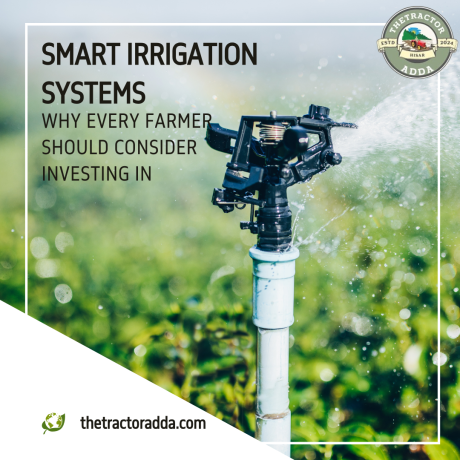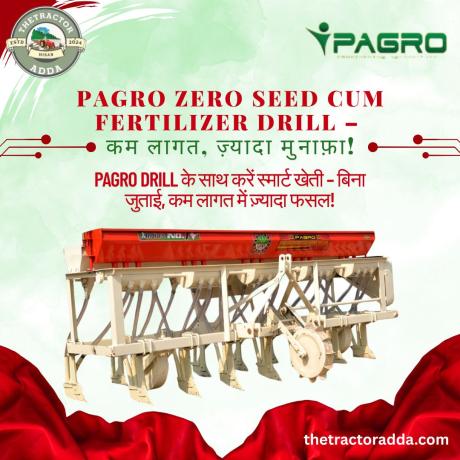Why Every Farmer Should Consider Investing in Smart Irrigation Systems

Blog Description
In today's fast-paced world, farming is no longer about working harder but about working smarter. With the rise of smart technologies, farmers are embracing innovations that can not only improve productivity but also contribute to sustainable agriculture. One such groundbreaking innovation is smart irrigation systems.
Let’s take a deep dive into why every farmer should seriously consider investing in smart irrigation technology for their farm.
1. Water Conservation: The Key to Sustainable Farming
Water scarcity is one of the biggest challenges facing farmers worldwide. With increasing pressure on water resources and changing climatic conditions, it has become essential to use water more efficiently. Smart irrigation systems are designed to optimize water usage by delivering the right amount of water to crops at the right time.
These systems use sensors and weather data to determine soil moisture levels, crop requirements, and weather forecasts. This reduces water wastage and ensures that crops get enough moisture without over-irrigating, ultimately conserving precious water resources.
2. Boosting Crop Yields
When plants receive the right amount of water at the right time, they grow better and faster. Smart irrigation ensures that crops get consistent watering, leading to healthier plants and increased crop yields. By avoiding both under-watering and over-watering, farmers can create an optimal growing environment, leading to higher productivity and profitability.
Studies have shown that farms equipped with smart irrigation systems often see up to 20-30% higher crop yields compared to traditional irrigation methods. This increase in yield directly impacts farm profitability and food production.
3. Cost Savings in the Long Run
Although the initial investment in a smart irrigation system might seem high, it pays off in the long term by drastically reducing water and energy costs. Traditional irrigation methods can waste water and require labor-intensive monitoring, while smart irrigation systems automate and fine-tune the process, leading to substantial savings.
Farmers no longer need to manually monitor water usage, as automated systems adjust watering schedules based on real-time data, cutting down on unnecessary water usage. Moreover, by reducing water wastage, farmers also reduce the energy costs associated with pumping water.
4. Precision and Efficiency
Smart irrigation systems operate based on real-time data, making them far more precise than manual irrigation methods. This precision reduces the risk of over-irrigation, which can lead to waterlogging, nutrient leaching, and crop stress.
Using advanced sensors and smart controllers, these systems can deliver water to specific areas of the field that need it the most, resulting in even distribution of water across the entire field. This level of efficiency leads to healthier crops and more efficient use of resources.
5. Adaptation to Climate Change
As the climate becomes increasingly unpredictable, farmers are faced with the challenge of adapting to changing weather patterns. Smart irrigation systems are equipped with weather sensors that collect data on local conditions. These systems can adjust watering schedules based on factors like temperature, rainfall, and wind, ensuring that crops are protected from droughts and excessive rainfall.
Farmers can receive alerts when there’s a change in the weather, allowing them to make real-time adjustments to the irrigation system and avoid crop damage due to unexpected conditions.
6. Remote Monitoring and Control
One of the standout features of smart irrigation is the ability to remotely monitor and control irrigation systems through a smartphone or computer. This convenience means farmers can manage their irrigation schedules from anywhere, without the need to be physically present on the field.
Farmers can check soil moisture levels, weather forecasts, and system performance at their fingertips, allowing them to make data-driven decisions even when they are miles away from the farm.
7. Environmental Benefits
Smart irrigation is not just good for the farm; it’s great for the planet too. By using water more efficiently, farmers can help reduce the environmental impact of agriculture. Less water usage means fewer resources are required to produce crops, contributing to the overall reduction in the farm's carbon footprint.
Additionally, efficient irrigation helps preserve local water supplies, ensuring that both agricultural and non-agricultural needs are met without exhausting resources.


